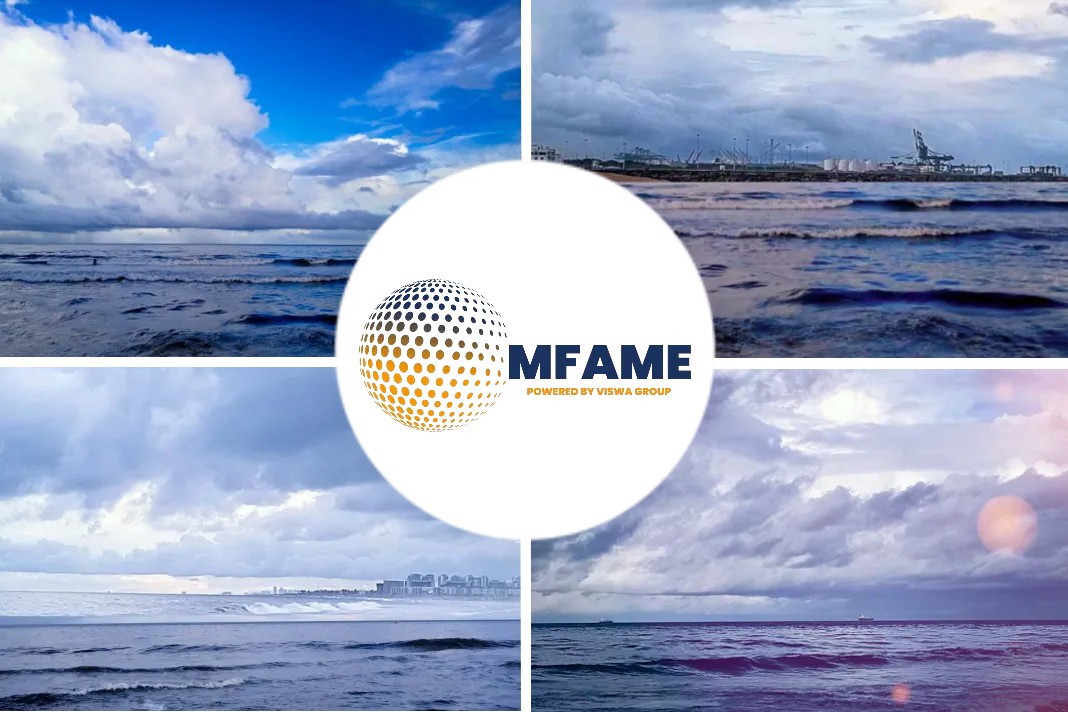“Each seaman will do the same”.
Those words, spoken by Captain Lykov Pavlo, were said to have encapsulated the bravery and courage of mariners, prepared to go to the aid of others in distress, in the face of an angry Pacific Ocean.
Captain Pavlo was master of the container ship MSC Carole.
Back in February 2012, Captain Pavlo and his crew received an AMSA award for their role in rescuing 53 survivors of the Rabaul Queen, the Papua New Guinean ferry that sank en route from Kimbe to Lae earlier that month.
More than 100 people were pre-sumed drowned and yet the toll could have been higher, were it not for the sailors of the MSC Carole and other merchant vessels.
The ship was sailing from Ningbo to Brisbane when it received the distress call from the Australian Air Rescue Centre.
MSC Carole rescued 51 people from the life rafts and two who were in the ocean.
In total, more than 200 people were rescued by five merchant ships.
Austal secures contract
The end of summer was fast-approaching and Lloyd’s List Australia was reporting on Western Australian business Austal securing an order for a medium-speed ferry with French Polynesia operator, and existing customer, SNC Aremiti Ferry.
Delivery of the 80 metre vehicle passenger catamaran was set for October 2013 and was the fourth vessel Austal had sold to Aremiti and its associated companies.
For example, the company’s fleet at the time included the 56 metre high speed ferry Aremiti 5 which Austal delivered in 2004.
The new ferry was expected to operate between the islands of Tahiti and Moorea and would carry locals, tourists and freight operators.
“Repeat business is the ultimate measure of customer satisfaction, and so it is particularly gratifying that our first two new contracts for the year have come from existing clients,” said Austal chief executive officer Andrew Bellamy.
With a fully-loaded speed of 20 knots, capacity for up to 967 passengers and up to 146 cars, or a mix of cars and trucks, the new ferry was to be French-flagged. It was designed to meet EU domestic voyage rule requirements.
Greens complain dredging is unaffected by Reef review
Environmental issues were then, as now, a hot topic, particularly in relation to the Great Barrier Reef.
In early 2012, the Australian Greens argued that the strategic review of the Great Barrier Reef would not put a halt to dredging.
The Queensland government, Federal government and the Great Barrier Reef Marine Park Authority had signed an agreement, describing it as the “most comprehensive and complex strategic assessment ever carried out.”
Federal environment minister Tony Burke had said at the time that the Great Barrier Reef World Heritage Area would undergo a joint assessment to ensure future development along Queensland’s coastline was well planned and the environment protected.
The strategic review would consider federal and state environmental planning issues in a single assessment process, Mr Burke said.
Port Botany sell off moves on
Looking to the box ports, New South Wales had appointed law firm Minter Ellison and accountant PricewaterhouseCoopers (PwC) to advise on the long-term lease of Port Botany.
Minter Ellison and PwC were appointed by the state government on February 13, a spokesperson for NSW then treasurer (later Premier) Mike Baird confirmed to Lloyd’s List Australia.
News of the Minter Ellison and PwC appointments came two months after the government announced Morgan Stanley would be the financial advisor for the port transaction.
Morgan Stanley’s appointment followed a competitive tender process which included proposals from a large number of financial advisory companies, Mr Baird said in December 2011.
Port Botany’s 99-year lease was expected to “release a significant amount of capital….for critical infrastructure,” Mr Baird said at the time.
“This is an important development in the transaction process for the long term lease of Port Botany, which will deliver for the people of NSW on a number of levels.”
Sea trials prove Hantong design fuel efficiencies
Sea Trials of a dry bulk newbuilding in China had proved the possibility of gaining easy fuel savings by making simple alterations to a standard design.
The 57,000 dwt Aquila was delivered back in January 2012 from Jiangsu Hantong Shipyard to Greek owner Delphin.
The original design from the Shanghai Design and Research Institute was modified by the shipyard.
These included de-rating the engine, ensuring a propeller size that best matched the new engine rating and the addition of a Mewis duct forward of the propeller.
Sea trials verified by surveyors from UK-based class society Lloyd’s Register were suggested to have had significant fuel savings due to these straightforward design alterations.
During trials at a ballast draft and a speed of 14 knots, fuel consumption dropped from 29.4 tonnes to 26 tonnes.
Did you subscribe for our daily newsletter?
It’s Free! Click here to Subscribe!
Source: Lloyd’s List Australia















